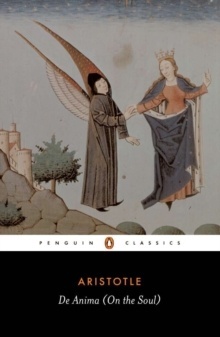De Anima (On the Soul)

Editorial Penguin Books Ltd
Fecha de edición enero 1987 · Edición nº 1
Idioma inglés
EAN 9780140444711
Libro
encuadernado en tapa blanda
Resumen del libro
For the Pre-Socratic philosophers the soul was the source of movement and sensation, while for Plato it was the seat of being, metaphysically distinct from the body that it was forced temporarily to inhabit. Plato's student Aristotle was determined to test the truth of both these beliefs against the emerging sciences of logic and biology. His examination of the huge variety of living organisms - the enormous range of their behaviour, their powers and their perceptual sophistication - convinced him of the inadequacy both of a materialist reduction and of a Platonic sublimation of the soul.
In De Anima, he sought to set out his theory of the soul as the ultimate reality of embodied form and produced both a masterpiece of philosophical insight and a psychology of perennially fascinating subtlety.
Biografía del autor
Aristóteles representa una figura indiscutible en la historia del pensamiento científico y filosófico. Su sistema, sus ideas, sus obra, han estado presentes en las diversas tendencias filosóficas de la cultura occidental.








